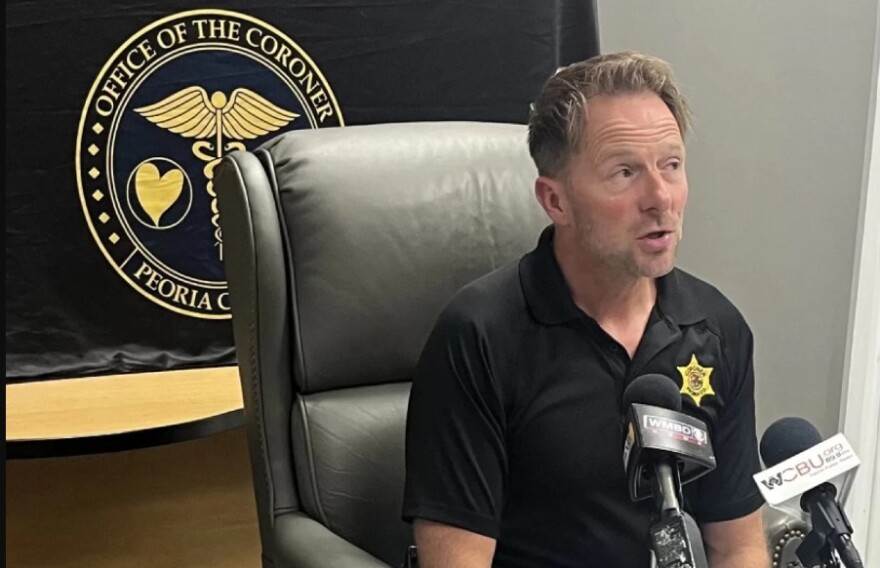Peoria County Coroner Jamie Harwood is calling on Gov. JB Pritzker to veto a bill that would allow terminally ill individuals to get a prescription to end their life.
Harwood said the pending “medical aid in dying” law presents statutory conflicts that threaten the integrity of death investigations.
“We preside over several hospice deaths throughout our community. It’s not that we don’t trust people or think someone killed another person, but we do have to have the ability to investigate if we need to,” said Harwood. “That’s all we’re asking for out of the governor before he signs this bill, is an amendatory veto giving us that opportunity.”
The Illinois Senate voted 30-27 in passing Senate Bill 1950 – the aid in dying legislation also known as Deb’s Law – on Oct. 31 after House approved the bill in May. The bill awaits Pritzker's signature.
In a social media post last week, Harwood cited substantial concerns about public health and epidemiology. He said the language of the bill conflicts with coroners’ statutory responsibilities, prevents accurate death certification, creates barriers to sharing information with other agencies, and exposes counties to unnecessary legal risks.
“As it stands now, the physician will list the cause of death that relates to the terminal condition, not the medication that actually caused the death,” said Harwood. “We have an issue with that, being sworn for justice on our statute and on our death investigations.”
Harwood says members of the Illinois Coroners and Medical Examiners Association [ICMEA] discussed the potential impact of the bill during last week’s fall conference of the Illinois Association of County Officials.
“It wasn’t the fact that the coroners across Illinois are pro or con for suicide; that discussion never happened. We firmly believe that the residents of Illinois want to have that decision to choose, which we’re supportive of,” said Harwood, a past ICMEA president.
“What we’re not supportive of with the language of the bill is that there’s no third-party oversight once the person passes away. The bill actually restricts us from being able to investigate that death if we need to.”
Under the pending law, a patient with a terminal illness who is at least 18 years old must have a diagnosis from two physicians that death would result within six months.
“I have an issue with the six months or less life expectancy; there’s no crystal balls in this world,” said Harwood. “Unfortunately, I’ve seen over and over again where people actually go in hospice, and then they live past that six months or seven months. So then what happens? you know, and I think that’s part of the bill that needs to be tightened.”
Harwood says the association wasn't able to have any input into how the legislation was drafted.
“We just weren’t called into the conversation. We weren’t called in to decipher this language, to work with governor’s office or the General Assembly in this bill at all,” he said. “I think that’s the unfortunate part. I don’t even think we’d be having this conversation had we been able to testify and provide our opinion and our expertise.”
Harwood said the bill as written introduces more problems than it solves. While his office urges a full veto, an amendatory veto to address the potential risks and conflicts would be a viable alternative.
“Our focus is to look at this empathetically and compassionately for the residents, like we do every death we investigate,” said Harwood. “We just want to make sure there’s justice as well.”


